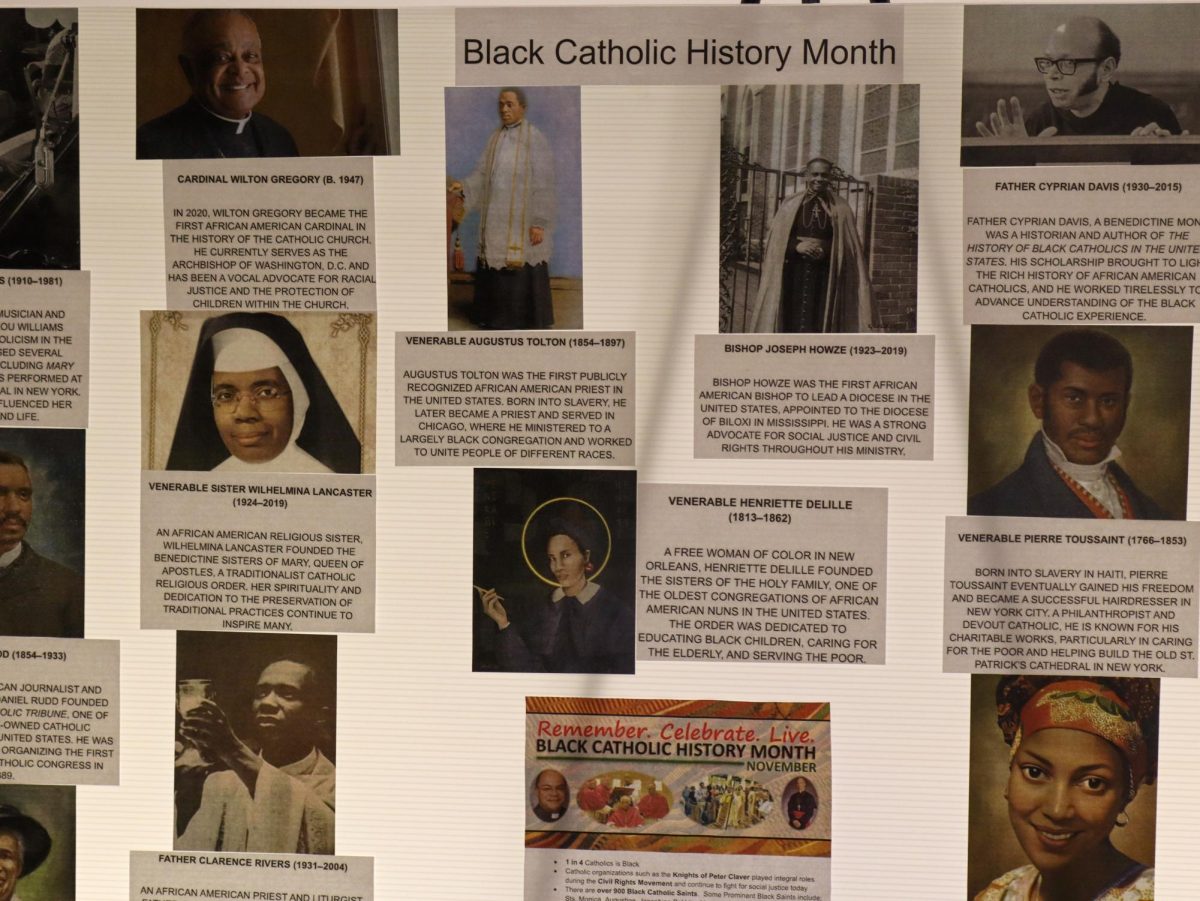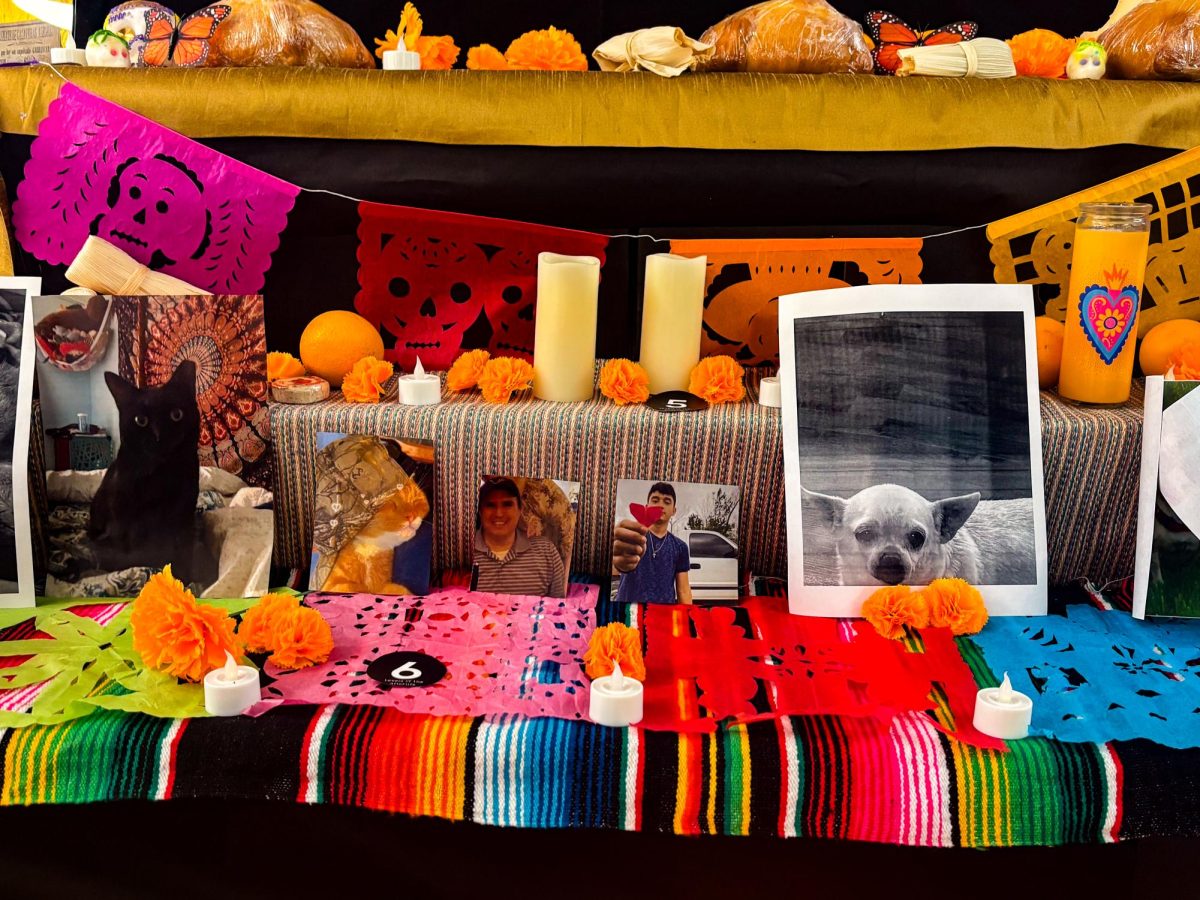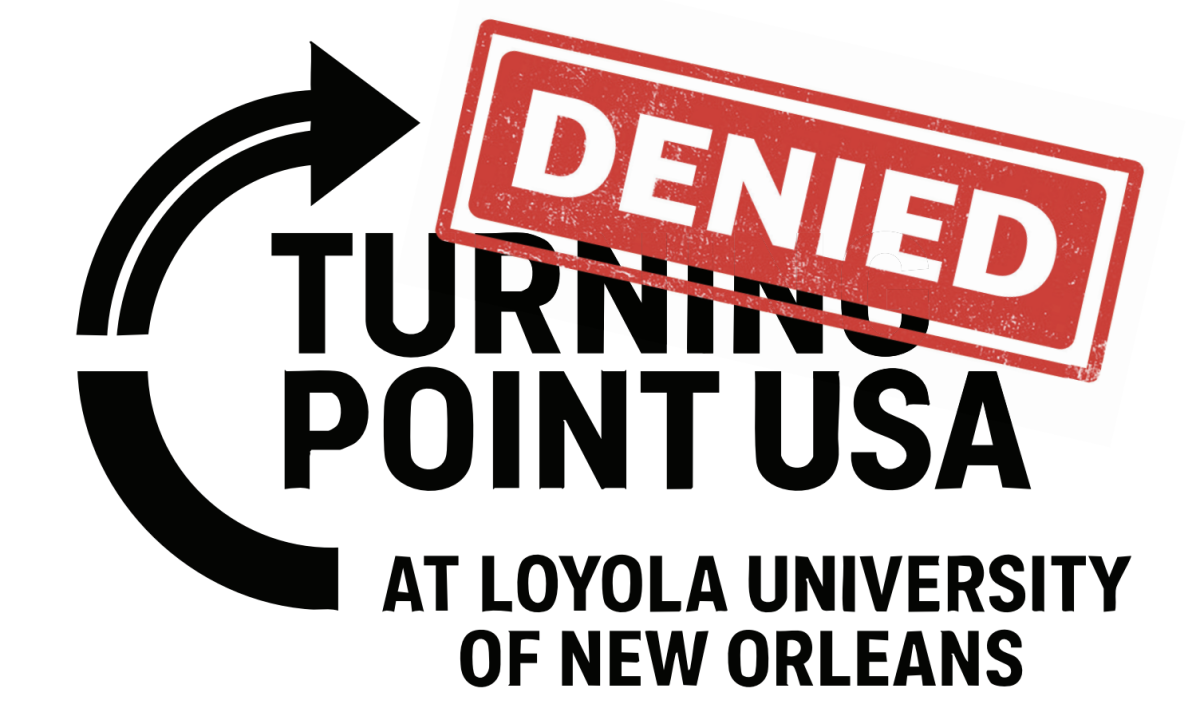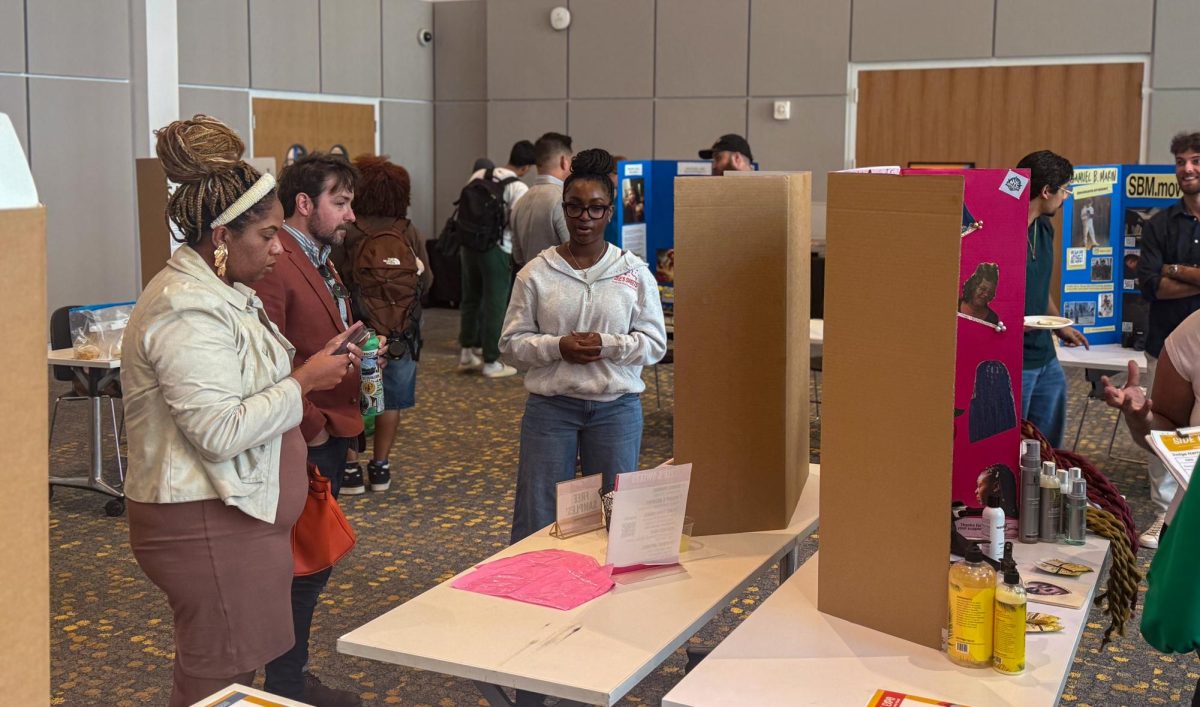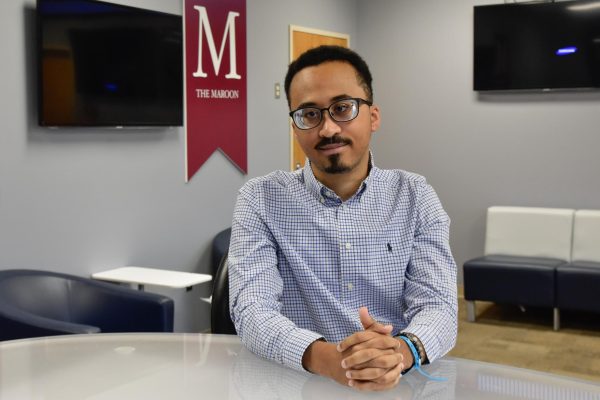In 1968, a group of 25 students got together on Loyola’s campus in the middle of a world of chaos and launched Expression, the first organization composed of mostly Black students in Loyola history.
To commemorate the moment, 57 years later, Loyola honored those individuals and their efforts by unveiling a plaque commemorating the group’s founding and dedicating a pair of benches on campus to them.
“We are looking at times not so dissimilar to the times of the Civil Rights movement, which all of these folks we’re honoring this evening traversed, and came through on the other side of,” said University President Xavier Cole. “And it doesn’t mean that their work wasn’t meaningful, or didn’t work at all. And I hope this plaque can be a representation of not only their struggle, but also their resiliency and victories along the way.”
One of Expression’s co-founders and its first president, Ronald Nabonne, believed the group was needed at Loyola when he first arrived in 1965, so he wanted to be a part of creating a community for Black students at the school.
“There were only four other Black students here when I got here,” he said. “Loyola was considered to be a school in a bubble from the outside world. They had no idea and didn’t really care about what was happening in the community around them. So we came, and we weren’t always welcome, but I think we tried to help Loyola grow as an institution and let them know about some of the struggles that we were facing in the larger world.”
It was important to the students that by being the first organization geared toward Black students, the message remained the most important aspect of the group, rather than its name, which is why they chose to name it Expression over the Black Student Union.
“We didn’t want the term “Black Student Union” to be an excuse or distraction from the message we were trying to send, which was pushing freedom of expression and freedom of thought,” Nabonne said. “We weren’t ashamed of being called a Black organization, but we didn’t want our name to distract from our message. Because everytime we raised a moral issue related to segregation or civil rights to the administration, we wanted to be able to say, ‘this is what our group is about, our purpose and mission, not just our name.’”
The dedication included the blessing of the plaque by Father Bentley Anderson, S.J. and a toast by President Cole.
“These students did not allow the troubles of their day to stop them from creating a community, building up one another, and giving each other hope for a better tomorrow,” said Anderson. “In the day and age where diversity and inclusion are viewed with suspicion and contempt, we had to remind ourselves that Loyola is an expression of God’s love for all of his children including the ones we are honoring here today.”
One of the group’s founding members, Carol Bebelle, was appreciative that the ceremony was taking place during a time when diversity, equity, and inclusion programs find themselves under threat by the federal government.
“I hope that the symbol of what this means is something that we can hold onto when you find yourself angry or hopeless,” she said. “The times that we are living in now are very reminiscent of the ones that we were in at that point in time and the fact that we’re here should be evidence that we are able to make it through those kinds of things, so I hope that’s part of what everyone is able to get out of this experience. I have chosen a platform of hope, because if everything else can be radical, I think hope can be radical too.”
The event was co-sponsored by the Black studies department at Loyola, which appointed two new co-chairs this year in Dawson McCall and Patricia Boyett after going without one for multiple years.
“We were able to host a panel with some of the organization’s founding members this past fall, and that was the first event the Black Studies department had put on in a while,” said McCall. “And this event is one in a long thread of events and actions that started with the founding of Expression, and it’s another step in the process of making sure this story gets told.”
A story that has resonated with Black students who are currently attending Loyola like the current president of the Black Student Union, English literature sophomore Pharrell Every, and feel it’s important that the group was recognized in this way.
“Their courage, resilience, and vision gave rise to what has now become BSU,” he said. “Through their dedication, we now have a platform to uplift and empower Black students and their voices, to celebrate our culture, and to address the issues that impact our community. Because of them, we have a space here at Loyola where we can express ourselves, foster unity, and make a meaningful impact on this campus.”
For Cole, it was important to be able to express gratitude for the moment.
“It’s our honor to be able to do this and we wouldn’t have been able to do it without all of their efforts and struggles,” said Cole. “So to everyone here and those who couldn’t make it, know that we love you, bless you, adore you, and thank you. That this is your moment, this is your home, and you are welcome back anytime.”









